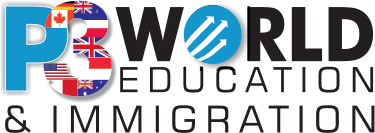Study in Singapore
Education System
Singapore offers tertiary education through universities and polytechnics. Polytechnics provide practical diploma courses in various fields such as Tourism, Biotechnology, Digital Media, Engineering, Business Studies, Mass Communications, Accountancy, and Hospitality Management. The five polytechnics in Singapore are Nanyang Polytechnic, Republic Polytechnic, Temasek Polytechnic, Singapore Polytechnic, and Ngee Ann Polytechnic.
For international students, admission to undergraduate courses typically requires the Indian Standard 12 marksheet, whether from CBSE, ISCE, or State boards. Admissions are based on academic merit and competition among eligible applicants. In addition to meeting admission requirements for international students, Indian students must fulfill subject prerequisites for their desired courses. For example, admission to Business Administration may require passing Mathematics in the 12th standard, while civil engineering may require passing Mathematics, Physics, and Chemistry at the school level.
College Fit
Students have a wide range of options when choosing a college or university in Singapore. While GPA is important, factors such as majors offered, location, student enrollment, and campus culture also influence prospective students' decisions.
Popular student destinations
The top universities in Singapore include Nanyang Technological University (NTU), National University of Singapore (NUS), Singapore University of Technology and Design (SUTD), and Singapore Management University (SMU). Popular courses among Indian students in Singapore include International Baccalaureate (IB) Diploma, Information Technology, Management, Finance/Accounting, and Engineering.
Safety in Singapore
Singapore is known for being safe and relatively crime-free. Major crimes are dealt with severely, and the government takes action against any form of extremism or terrorism. The country maintains a warm and humid climate throughout the year, with heavier rain during the monsoon season from November to January.
Lifestyle tips
Singapore is a multi-cultural society where Malay, Chinese, Indian, and Western influences coexist. Respect for elders and hierarchical relationships are important, although wealth and status are also significant. Singaporeans value egalitarian principles while maintaining strong social hierarchies.
Indians living in Singapore
In 2013, there were approximately 351,700 Indian immigrants living in Singapore, representing 9% of the country's population.
Accommodation
When seeking accommodation, you have the option to choose between university-managed housing or private rentals. University-managed accommodation may offer catered or self-catered options, providing meals and offering certainty in meal costs. The university accommodation office can provide information on available options. If university housing isn't available or preferred, the office can also offer a list of private properties and landlords in the area. Ensure you understand your rights and responsibilities by thoroughly reading any tenancy agreement before signing.
Orientation
Orientation week is mandatory for international students, so it's important to arrive before it starts. During orientation, you'll be introduced to the university and its services, and you'll have the opportunity to enroll in classes. Reading the provided guidebook is essential, as it explains each part of the admission process.
Activities
Colleges offer a variety of extra-curricular activities to provide students with diverse experiences, including intellectual, cultural, and recreational opportunities. Music, drama, science, and literary societies are common, along with outdoor education and leisure activities. College life also includes visits to theatres, concerts, art galleries, museums, religious centers, historical sites, scientific companies, and projects.
Requirements
Requirements vary between study programs and levels. Indian students typically need to meet a minimum English language requirement for each course, along with a minimum academic record of 70% and above in Class XII for admission to government universities. Private institutes and polytechnics may accept students who have secured below 60%. Additionally, students should have completed 18 years of age before joining a degree program.
Required documents include attested copies of mark sheets of Standard X, XII, and the Bachelor’s degree (if applicable), at least two academic reference letters, two letters of recommendation from employers, statement of purpose (SOP), resume, photocopied score reports of GMAT / IELTS / TOEFL, portfolio (for art and design courses and architecture programs), certificates/achievements, extracurricular activities, and proof of funds.
Timeline
Most colleges in Singapore accept online applications. You'll typically need to create an account on the college website, provide basic information, submit scanned documents, and pay application fees. The application process and stages will be communicated through your account. Application fees vary by college and course.
The common steps for applying for admission include searching for colleges and courses, contacting schools, narrowing down your list, taking entrance exams, writing SOPs and obtaining LORs, applying to colleges, appearing for video interviews, and applying for a student visa if accepted.
Intake Seasons
Singapore government universities generally have two intakes in August and February, while private institutes offer multiple intakes in January, February, July, August, September, and October. Polytechnics usually have intakes in April and September. Start your admission process around six months before the application deadline, with applications typically opening in October.
Language Exams
International English Language Testing System (IELTS), Test of English as a Foreign Language (TOEFL), and Pearson Test of English (PTE) are standardised language tests required for admission to colleges. While they follow different formats and structures, many colleges accept any one of the results, allowing students to choose which exam to take.
Exams can be repeated as desired, with IELTS having no limit on attempts. TOEFL can be retaken as many times as desired but not more than once in a 12-day period. PTE also allows unlimited retakes. The time required to prepare depends on existing English language proficiency, typically two to four months.
Score Requirements
For undergraduate courses, a score of at least 6.5 in IELTS and 80 in TOEFL is recommended. For postgraduate courses, a score of 7.5 in IELTS and 90 in TOEFL is typically required.
General Exams
GMAT (Graduate Management Admission Test) measures abilities of potential MBA aspirants in business or management. GRE (Graduate Record Examination) is required by students applying to graduate schools for MA or MS. Many business schools accept GRE scores for MBA admissions.
GMAT can be taken unlimited times, subject to five times a year and a 30-day gap between tests. Average GMAT score accepted across universities is 520, with top colleges typically requiring above 600. Average GRE score is 145 for Verbal, 160 for Quantitative, and 4.0 for Writing.
Cost of Living
The cost of living in Singapore varies depending on location and lifestyle. Basic elements for international students include accommodation, groceries, utilities, phone bills, textbooks, and airfare. Additional expenses may include dining out, travel, car rental, cable TV, and school expenses.
Tuition fees range from S$12,000 to S$15,000 per year for undergraduate courses and S$17,000 to S$25,000 per year for postgraduate courses.
Living Expenses
On average, international students in Singapore spend S$750 to S$2,000 per month on living expenses. This amount varies based on individual lifestyle. Monthly expenses may include accommodation rent, utilities, meals, public transport, mobile phone bills, books, and personal expenses.
Scholarships
Merit and need-based scholarships are available for international students based on academic performance, exam scores, and extracurricular achievements. Documents required for scholarship applications typically include academic records, CV, letter of intent, language proficiency certificates, and letters of reference.
Loans
Education loans are available for Indian nationals pursuing professional or technical courses abroad. Eligibility criteria include strong academic record, admission to a foreign institution, and age above 18 years. Loan amounts can cover up to 80% of tuition fees, with repayment typically starting after course completion.
Student's Pass Application
New applications for a Student’s Pass must be submitted at least one month and not more than two months before the commencement of the course. Applications must be submitted through the Student’s Pass On-Line Application & Registration (SOLAR) system.
Required documents for the application include a valid passport, completed Student Visa Application Forms (ICA form 16 & Form V36), application fee payment receipt, offer of place from a Singapore institute/university, and passport-sized photographs. Additional documentation may be requested during the personal interview.
Post-Studies Visa Process
After completing the degree program, international students can apply for a one-year Visit Pass to the Immigration & Checkpoints Authority of Singapore (ICA) if they wish to seek employment opportunities in Singapore. This application can be done online through e-VP.
Work Permit
International students can work part-time for up to 16 hours per week. Work permits are not required for holiday work, allowing students to work full-time during breaks without visa restrictions.
Visa for Spouse
Spouses and children of full-time graduate research students can obtain sponsorship from the university for a Social Visit Pass to stay in Singapore. They should apply for an entry visa at Singapore's embassy and will be given a 4-week Social Visit Pass upon arrival in Singapore.
Pre-departure Checklist for Singapore
- Book airline tickets
- Arrange accommodation in Singapore
- Arrange transportation to/from the airport to home in Singapore
- Arrange your banking – consider buying traveller’s cheques
- Check baggage and customs limitations
- Clear all paperwork with your home educational institution
- Get your documents in order and make photocopies to store in your baggage
and keep at home, including:
- Passport
- Airline tickets
- Travel insurance certificate
- Letter of Acceptance by the educational institution
- Key addresses and phone numbers
- A bank statement showing proof of funds
- Prescriptions for any medication you are carrying
- Traveller’s cheques (if applicable)
- Medical and immunization records
- Academic history and university transcripts
Work Visa Process in Singapore
In Singapore, the work visa process depends on whether you have secured a job offer before completing your studies:
- If you accept a job offer before completing your studies, your employer needs to apply for the employment pass on your behalf.
- If you do not secure a job before completing your studies, you can apply for an 'approval in principle work visa'. This allows you to stay for a limited time while looking for a job.
An employment pass is typically valid for a few years, usually between three to five years. The validity of the visa is linked to the job you are doing, so as long as you are gainfully employed, the work visa remains in effect.





